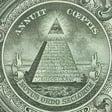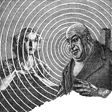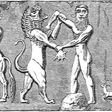
The Illuminati: Bavarian Order
In this episode, Megan and Frank investigate the Bavarian Order of the Illuminati, a secret society founded in 1776 by the Enlightenment philosopher Adam Weishaupt. This conversation covers who the Illuminati were, what they believed, and how they attempted to bring about a "new world order." Thinkers discussed include: Adam Weishaupt, Rousseau, Kant, Hegel, Marx, Mencius, and Alasdair MacIntyre.
-----------------------
Hosts' Websites:
Email: philosophyonthefringes@gmail.com
-----------------------
Bibliography:
The Secret School of Wisdom: The Authentic Rituals and Doctrines of the Illuminati (Primary source documents)
CATHOLIC ENCYCLOPEDIA: Illuminati
Illuminaten - Dictionary of Gnosis & Western Esotericism
Perfectibilists | Independent Publishers Group
After Virtue - A Study in Moral Theory - Alasdair MacIntyre
How Mengzi came up with something better than the Golden Rule | Aeon Ideas
-----------------------
Cover Artwork by Logan Fritts
-------------------------
Music from #Uppbeat (free for Creators!):
https://uppbeat.io/t/simon-folwar/neon-signs
License code: CUCILUBPXFZKKTOP



















